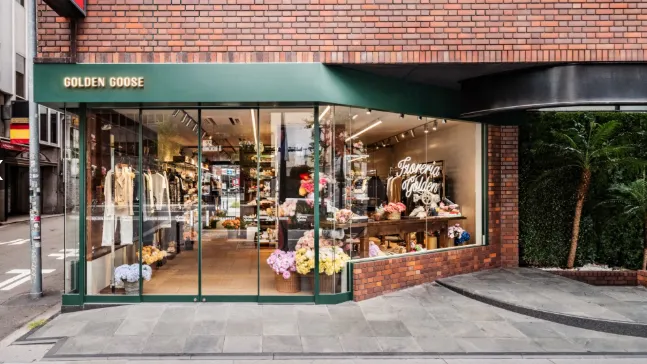Reinventing value chains for better gains... Retailers, disrupt yourselves
True, ‘disruption’ may be an over-used word these days.
Nevertheless, rather than business-as-usual, companies have to remind themselves to look at the bigger picture, keep up with trends and see how else they can approach business for better gains, without abandoning the core business modus operandi.
Where is the disruption?
The value chain is being reinvented and modified. It is happening in almost all industries, even in the broadcast industry where I come from. Now, in F&B and retail, where many F&B operators and retailers are traditional businessmen, the challenge and opportunity lies in the change in the mindset.
At a recent DBS F&B Disrupt event organised by DBS SME Banking in Singapore, the high costs, lack of manpower and low margins in F&B are monumental challenges for many SMEs.
Taking advantage of the consumers’ appetites for ‘green’ and sustainable food, the rise of technology developments may help to counter this. This, in turn, helps the business owner to increase productivity and save costs, and perhaps, create a new business opportunity altogether.
The DBS research team noted F&B outlets serving healthier and sustainable menus as earning higher margins than fast-food outlets.
Another way to decrease costs is to explore innovative and productive ways to manage and make use of the kitchens more effectively. In terms of using technology to provide a great dining experience with a differentiated concept, one service that caught our eye is the interactive table-top solution. This allows the diner to order their food, interact with other diners, as well as make their payments from the table — a dining experience they can tell their friends about. Though, of course, the quality of the food must be on par with this interactive experience.
Meanwhile, traditional retailers are waking up to the fact that consumers are increasingly into e-shopping for a range of goods due to the convenience it provides. With the changing economic climate, the rise of the busy professional and modern-day threats such as the MERS virus, consumers are changing their buying behaviors. In the aftermath of the MERS virus, South Korean consumers are flocking to online shops to buy groceries and other necessities from the comforts of their home. Savvy retailers are recognising this trend and offering huge discounts online, not available at their stores.
It is evident that the battle for consumers is now invisible and being waged online.
Creating omni-channel opportunities
Companies such as Honeywell have upgraded and adapted their suite of products and solutions to help their retail customers to equip both their mobile staff at the warehouse as well as the front-store personnel to do their work better.
From a consumer point of view, mobile coupons and digital engagement are increasingly becoming a necessity. You’ll read more about this in our Honeywell story on how retailers can integrate their loyalty programmes with digital, and hence increase customer satisfaction. The cut in waiting time and increase in customer service efficiency are beautiful music to the consumers’ ears! Retailers who make it a breeze for customers to purchase from them will be the successful ones.
Bridging the talent gap in retail
At a recent IKEA MOU signing event with Singapore’s Temasek Polytechnic, the polytechnic’s retail course manager shared that retail has had a misplaced perception — it is not seen as a long-term professional career by the public, and thus it is a challenge for retailers to attract, train and retain young graduates into the industry. A course in retail management, more often than not, is not a No.1 choice for young graduates.
The question then is, how can retailers ramp up their training programmes? How can schools, and the industry work together to bridge this perception gap? Is there a renewal needed in the industry? We will be exploring this topic more in future issues — meanwhile, we welcome your comments on how retailers are overcoming this challenge.
The digital journey ahead
We at Retail Asia are also disrupting ourselves.
We are expanding our newsbeat and industry analysis to cover e-commerce, challenges faced by SMEs, and young retail talent entering the industry. We are all-encompassing — we want to speak to as many industry professionals as possible from various areas to help you, the reader, keep up with the industry challenges and trends, so you can disrupt yourselves.
Along with my managing editor remit, with our publisher Andrew’s vision to bring Retail Asia into the digital age, I’m pleased to take on the additional role of Chief Community Builder of Asia’s #1 B2B retail trade magazine. As you can see, we have a revamped newsletter and social media platforms set up and activated. Do follow us, tweet us, and share our links — join in the conversation.
You are also invited to join our discussions on the Retail Asia LinkedIn group platform for retail industry professionals.
No matter what industry we come from, we can challenge ourselves to see what and how we can do better, as professionals and contributors to the industry. I come from a viewpoint of a marketer, digital strategist, and also a consumer.
Together, we will build a retail fraternity, and our Retail Asia team is happy to bring you ‘News You Can Use’. Enjoy the July’s Asia-Pacific Top 500 issue ... and looking forward to meeting you at retail events around the region.



















 Advertise
Advertise






